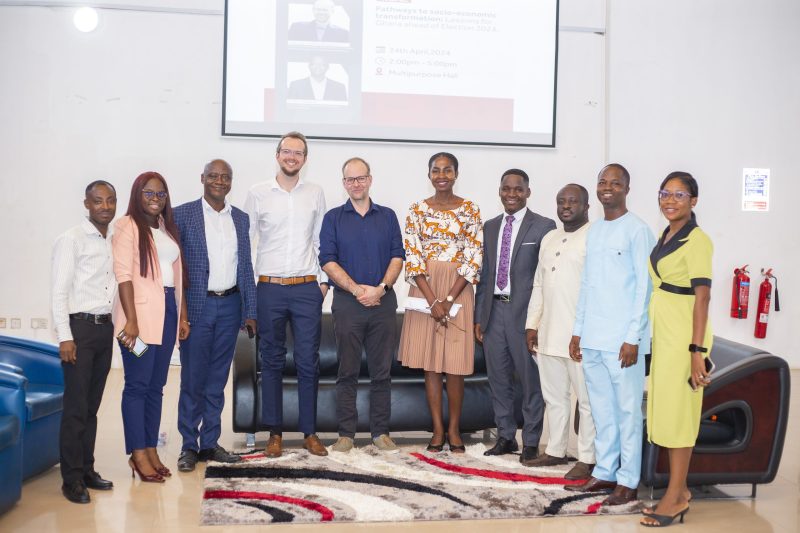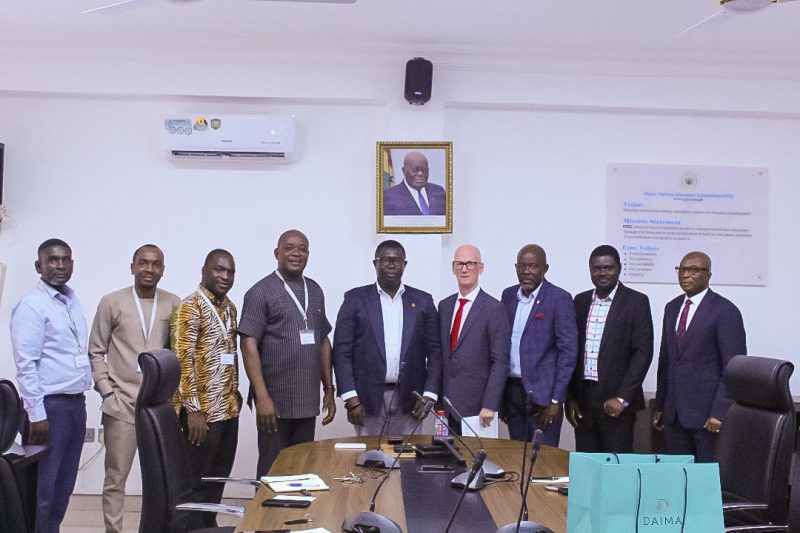On the weekend of 25th-27th March 2022, the Lancaster University Ghana Executive MBA class explored Global Strategic Management module with Scott Lichtenstein.
To give a practical insight into the module, the first in-person masterclass series since Covid -19, was held on 25th March 2022. Delivered by the CEO of Dalex Finance, Mr. Kenneth Kwamina Thompson, the presentation titled “Unleashing the Growth Mindset” highlighted strategies of approaching situations with the right mindset to achieve success.
Mr. Thompson shared his professional journey and emphasized how having the right mindset was instrumental to his success. He also gave tips on tuning one’s mindset to a positive one and encouraged the audience to adopt a can-do attitude.
The in-person masterclass series engaged both cohorts 6 and 7 EMBA students as well as academics and the business community and was followed by a networking cocktail session on the LUG campus.

About the LU Ghana EMBA Masterclass
The EMBA masterclass is an engagement designed around taught modules of the EMBA programme with industry speakers. Through the masterclass sessions the relationship between industry and academia is forged in support of our students’ personal, professional and leadership development.
The masterclass series is initiated and coordinated by Associate Professor Cynthia Forson, the Programme Director of the Ghana EMBA programme, and Deputy-Provost of Lancaster University Ghana.
About the Speaker
Kenneth Kwamina Thompson is the Chief Executive Officer of Dalex Finance and a Fellow of the Institute of Chartered Accountants in England and Wales. Mr. Thompson is a thought leader on business and economic matters. He currently serves as a director on the boards of Unique Insurance, Reliance Personnel Services and RPS Engineering Services. In 2016, Mr. Thompson was declared Businessman of the Year and Dalex Finance, Business of the Year by the Ghana Economic Forum.





